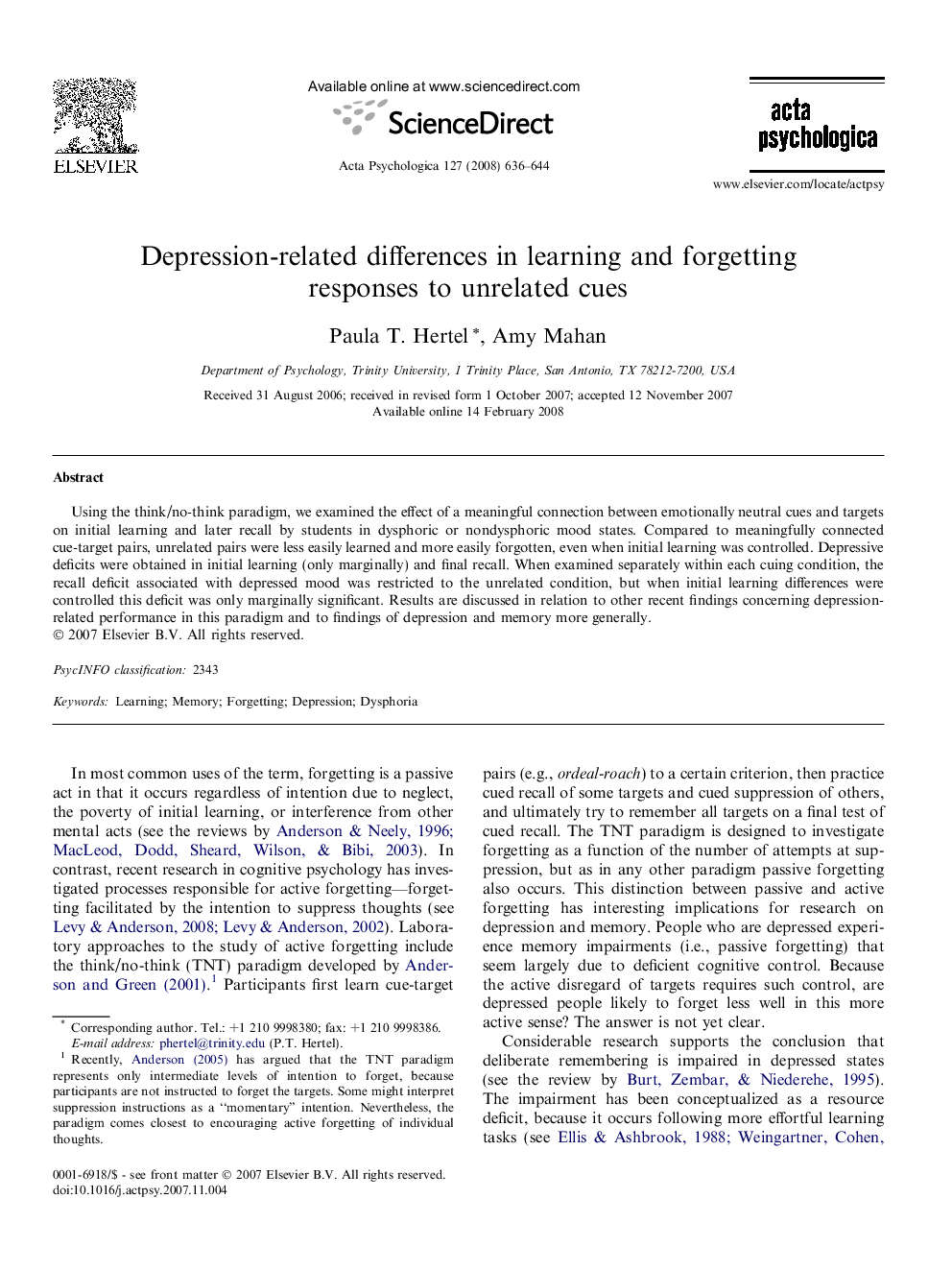| کد مقاله | کد نشریه | سال انتشار | مقاله انگلیسی | نسخه تمام متن |
|---|---|---|---|---|
| 920443 | 920288 | 2008 | 9 صفحه PDF | دانلود رایگان |

Using the think/no-think paradigm, we examined the effect of a meaningful connection between emotionally neutral cues and targets on initial learning and later recall by students in dysphoric or nondysphoric mood states. Compared to meaningfully connected cue-target pairs, unrelated pairs were less easily learned and more easily forgotten, even when initial learning was controlled. Depressive deficits were obtained in initial learning (only marginally) and final recall. When examined separately within each cuing condition, the recall deficit associated with depressed mood was restricted to the unrelated condition, but when initial learning differences were controlled this deficit was only marginally significant. Results are discussed in relation to other recent findings concerning depression-related performance in this paradigm and to findings of depression and memory more generally.
Journal: Acta Psychologica - Volume 127, Issue 3, March 2008, Pages 636–644